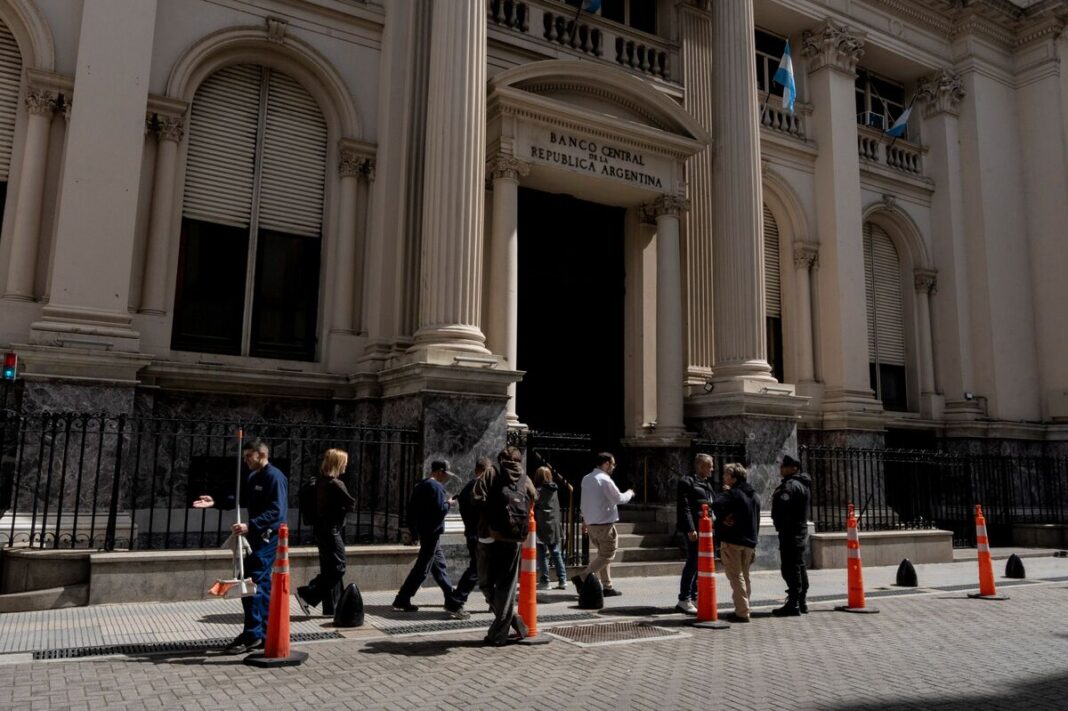Argentina’s Currency Crisis: Government Intervention in the Forex Market
In a dramatic turn of events, Argentina’s government recently intervened in the foreign exchange (forex) market, selling dollars to counter the relentless decline of the peso. This decision came amid mounting concerns over the local currency’s value, which had been plummeting for three consecutive days. Such measures illustrate the broader economic challenges facing Argentina, a nation grappling with inflation, currency devaluation, and investor uncertainty.
The Peso’s Decline: Understanding the Context
The Argentine peso has faced severe depreciation, a trend exacerbated by a series of economic policies and external factors. Historically, the peso has been subject to volatility, but recent weeks have seen an alarming acceleration in its decline. The reasons for this may include soaring inflation rates, which reportedly hover around an astonishing 100% annually, external debt obligations, and a lack of confidence in the government’s economic strategies. As the peso weakens, the cost of imported goods skyrockets, affecting everyday citizens and businesses alike.
Government Measures: Selling Dollars to Stabilize
In response to the peso’s sharp decline, the Argentine government opted to sell dollars on the spot market to stave off further depreciation. This intervention is not simply a short-term fix; it reflects a strategic move aimed at restoring confidence in the peso. By supplying dollars, the government attempted to reduce demand for foreign currency, which tends to rise when the domestic currency weakens. This approach, while common in various economies experiencing currency crises, raises questions about its long-term effectiveness.
The Implications of Currency Intervention
Despite the immediate attempt to stabilize the peso, selling dollars can have significant implications. For one, it could deplete the country’s foreign reserves, which are already under pressure from ongoing economic challenges and commitments to international creditors. Moreover, continuous intervention risks creating an unsustainable reliance on foreign currency markets, which could deter foreign direct investment and worsen the overall economic outlook.
Public Sentiment and Economic Anxiety
The public reaction to these government measures reveals underlying anxiety and frustration among Argentine citizens. Many perceive the government’s actions as mere stopgaps rather than substantive solutions to the root causes of inflation and currency instability. As everyday expenses become more burdensome, citizens are left questioning not only the effectiveness of government policy but also their trust in economic leadership. This sentiment can further lead to social unrest, complicating an already tense political landscape.
The Global Perspective
Argentina is not alone in facing currency devaluation; many countries have navigated similar challenges. However, the political and economic landscapes vary significantly. Comparisons to other Latin American countries reveal lessons and cautionary tales. For instance, nations that implemented sound monetary policies and embraced structural reforms often fared better in times of crisis. These examples may serve as valuable case studies for Argentina as it confronts its unique fiscal challenges.
Looking Ahead: The Road to Recovery
As Argentina continues on this tumultuous economic journey, the road ahead remains uncertain. The government’s efforts to stabilize the peso through market interventions are crucial steps; however, they need to be complemented by comprehensive reforms that address the structural issues underlying the economy. This might involve reevaluating fiscal policies, enhancing export competitiveness, and reinvigorating national industries to bolster confidence and promote sustainable growth.
In a nation so rich in culture and potential, the quest for economic stability is more than just a financial issue; it intertwines with the hopes and aspirations of millions. As stakeholders—citizens, businesses, and government—navigate these complex waters, the future of the Argentine peso and its economy remains a pivotal concern for all.



